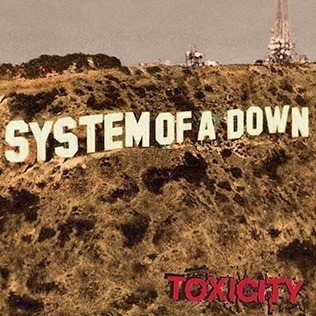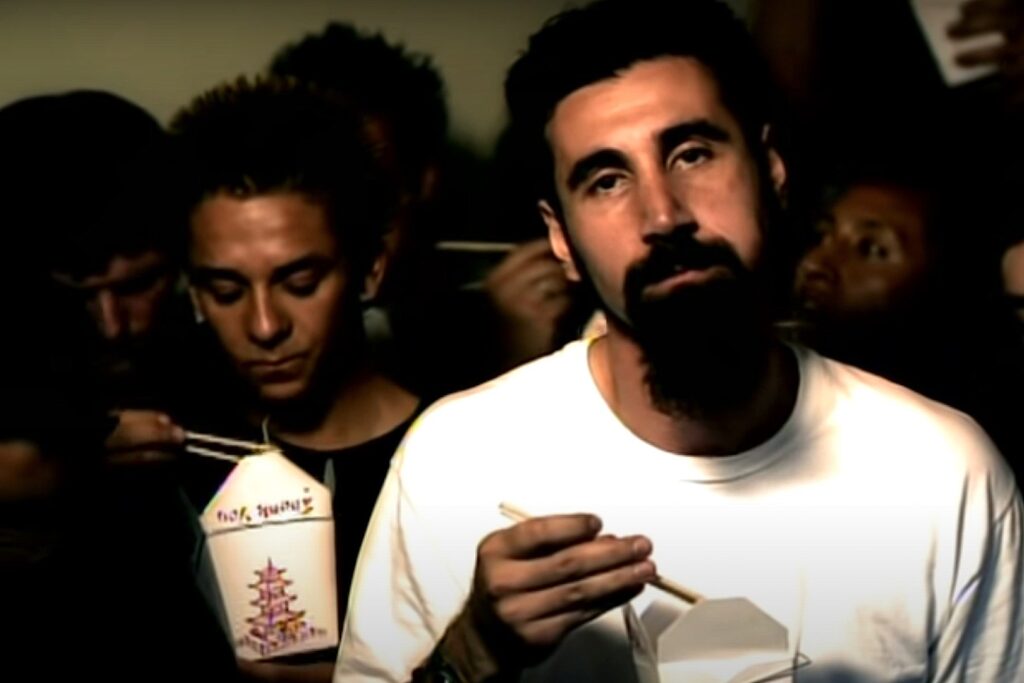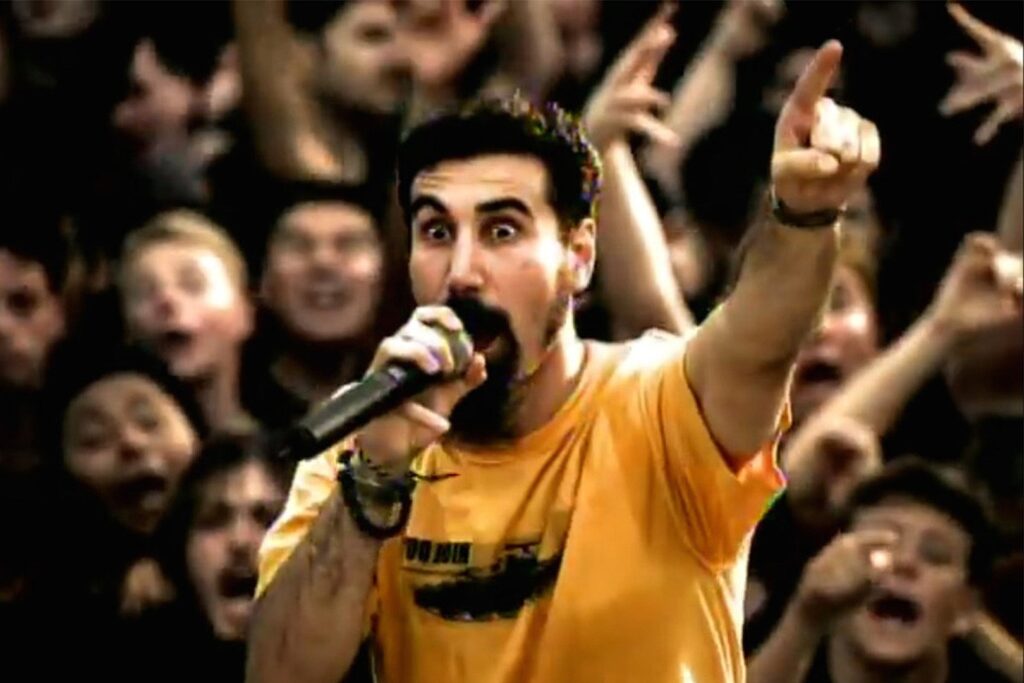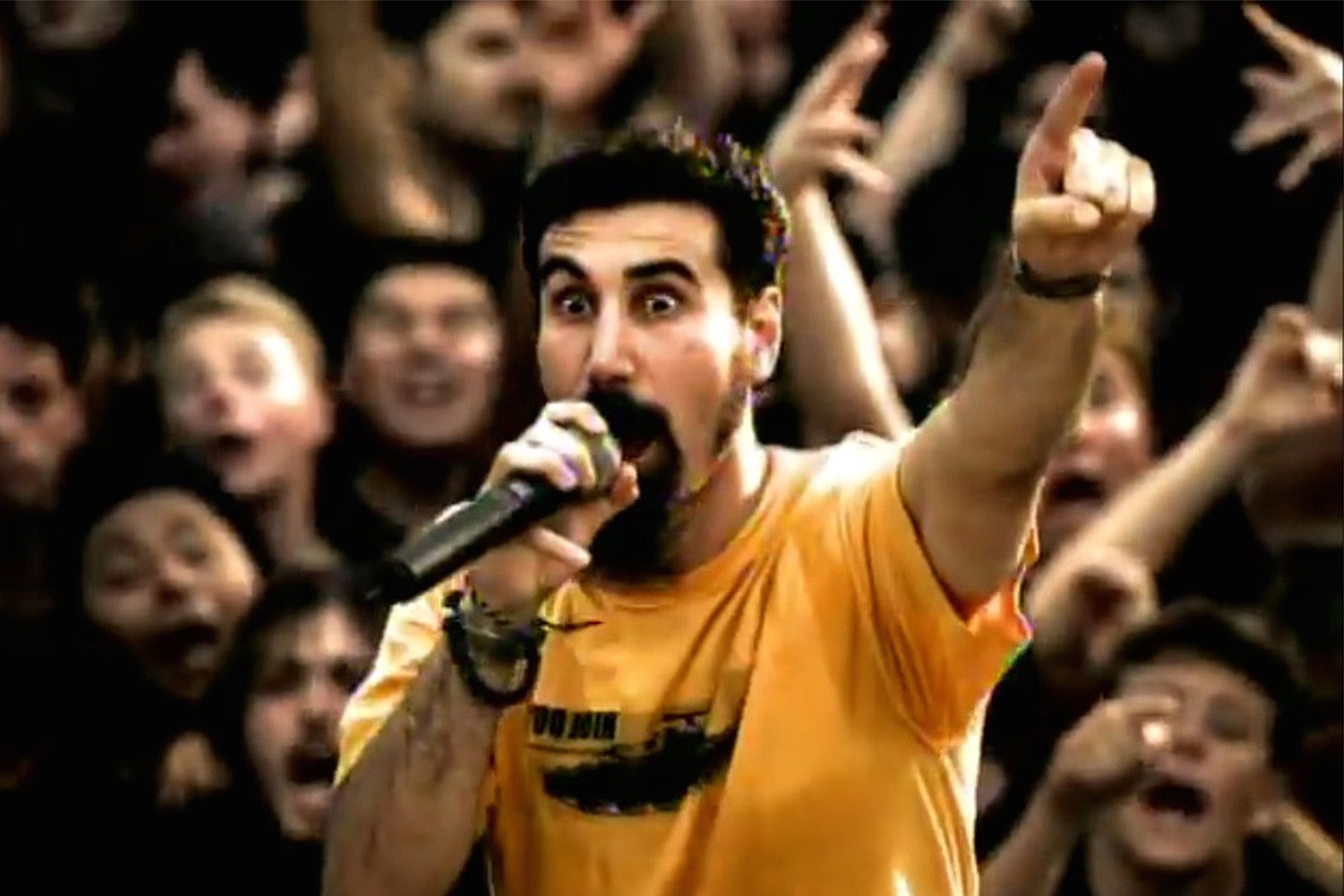“Chop Suey!” is the first single from Armenian-American heavy metal band System of a Down’s second album Toxicity. The single was released in August 2001 and earned the band its first Grammy nomination in 2002 for Best Metal Performance. “Chop Suey!” is often seen as the band’s signature song.

In an interview, Daron Malakian explained, “The song is about how we are regarded differently depending on how we pass. Everyone deserves to die. Like, if I were now to die from drug abuse, they might say I deserved it because I abused dangerous drugs. Hence the line, ‘I cry when angels deserve to die.'”

The lyrics for the midsection (“Father, into your hands I commend my spirit / Father, into your hands, why have you forsaken me?”) were randomly picked out by Serj Tankian from Rick Rubin’s book collection after Tankian was struggling for ideas. Rick Rubin told Serj Tankian to pick any book from his huge library in his home and open to any page and read the first phrase you see. Serj landed his finger on the famous last words of Jesus Christ from the Bible and it just fit so perfectly with the rest of the lyrics like magic. The verse can be found in Luke 23:46.
Rick Rubin is a highly influential music producer who has worked with many famous artists, including System of a Down. When Rubin appeared as a guest on Joe Rogan’s podcast, “The Joe Rogan Experience”, he did share about the creative writing process for the album and how he guided Serj Tankian to come up with the iconic lines for Chop Suey!
Rick Rubin is a highly regarded music producer who has worked with many famous artists, including Beastie Boys, Red Hot Chili Peppers, and Johnny Cash. In his appearance on the podcast, Rubin and Rogan discuss a range of topics related to music and Rubin’s experiences in the industry.
Some of the topics covered in the episode include Rubin’s approach to producing music, his thoughts on the current state of the industry, and his experiences working with artists like Johnny Cash and Kanye West. Rubin also discusses his interest in meditation and mindfulness, which he incorporates into his creative process.
Overall, the episode provides a fascinating insight into Rubin’s work and philosophy as a music producer and offers a valuable perspective on the art of creating music. If you are a fan of Rick Rubin or interested in the music industry, it is definitely worth checking out.

The song was originally titled “Suicide” but Columbia Records forced the band to change it to avoid controversy. The song title is therefore a wordplay: “Suey” is “suicide”, and “chopped” in half. However, the band members claim this change was not caused by pressure from their record company; Odadjian said the band simply chose their battles carefully. Most pressings of the album include an intro to the track where lead singer Serj Tankian can faintly be heard saying “we’re rolling ‘Suicide'” while drummer John Dolmayan is counting the band in.
We’re rolling “Suicide”
Wake up (wake up)
Grab a brush and put on a little makeup
Hide your scars to fade away the shakeup (hide the scars)
Why’d you leave the keys upon the table?
Here you go, create another fable
You wanted to
Grab a brush and put on a little makeup
You wanted to
Hide your scars to fade away the shakeup
You wanted to
Why’d you leave the keys upon the table?
You wanted to
I don’t think you trust
In my self-righteous suicide
I cry when angels deserve to die, die
Wake up (wake up)
Grab a brush and put on a little makeup
Hide the scars to fade away the shakeup (hide the scars)
Why’d you leave the keys upon the table?
Here you go, create another fable
You wanted to
Grab a brush and put on a little makeup
You wanted to
Hide your scars to fade away the shakeup
You wanted to
Why’d you leave the keys upon the table?
You wanted to
I don’t think you trust
In my self-righteous suicide
I cry when angels deserve to die, die
Father (father)
Father (father)
Father (father)
Father, into your hands I commend my spirit
Father, into your hands
Why have you forsaken me?
In your eyes forsaken me
In your thoughts forsaken me
In your heart forsaken, me oh
Trust in my
Self-righteous suicide
I cry when angels deserve to die
In my
Self-righteous suicide
I cry when angels deserve to die
The lines ‘I don’t think you trust in my self-righteous suicide/I cry when angels deserve to die’ were deemed too much for post-9/11 America to take, and the song was quietly pulled from the Clear Channel network.
In the days after 9/11, US media conglomerate Clear Channel sent an internal memo to each of the 1,100 radio stations it owned. It included a list of more than 160 ‘lyrically questionable’ songs that programmers and DJs might want to consider not playing in the wake of the attack on the Twin Towers.
